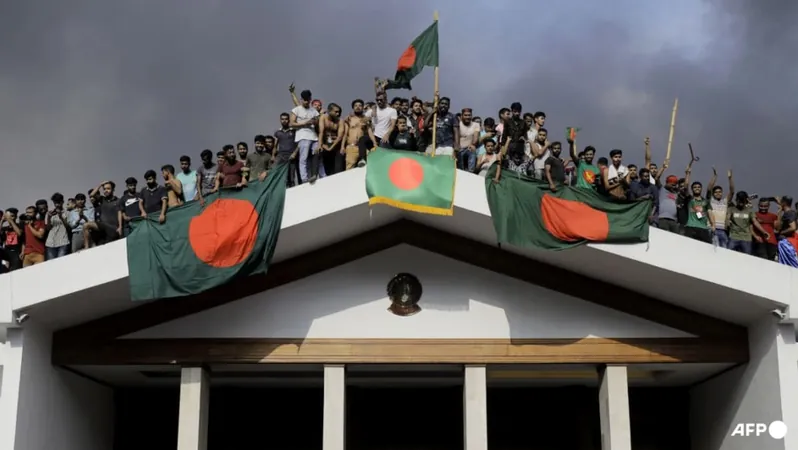
Bangladesh Withdraws Controversial Order Targeting Student Protests Amid Rising Tensions
2025-01-22
Author: Sarah
DHAKA: In a significant reversal, the Bangladeshi education ministry has rescinded an order demanding that officials monitor educational institutions and students involved in anti-government activities.
This decision, announced on January 22, follows widespread criticism that the directive undermined the essence of the last year’s student-led revolution that led to the ousting of long-time authoritarian leader Sheikh Hasina.
The pro-democracy uprising, which began in early 2024 and was largely driven by students, culminated in the departure of Hasina.
This momentous change paved the way for an interim government helmed by Nobel Peace Prize laureate Muhammad Yunus.
The rescinded order, issued on January 2 by the ministry's director for monitoring and evaluation, Abed Nomani, came to light only after it gained traction on social media platforms and dominated news outlets.
Education Minister Wahiduddin Mahmud stated he was unaware of the order's existence and emphasized that it has been annulled.
“The Directorate of Secondary and Higher Education was not instructed to issue any notification,” he declared. “This matter will be investigated to understand how it came to be.”
The original directive insisted on vigilance among officials.
It urged them to prevent students from engaging in "provocative actions" purportedly driven by misinformation against the government.
The vague language of the order raised alarms about what constituted such actions, leading to fears of a return to oppressive oversight.
Prominent lawyer Snehadri Chakravarty criticized the order, labeling it a direct infringement of constitutional rights.
"Student-led protests were pivotal in overthrowing the former prime minister, highlighting the population’s struggle for freedom of speech and expression," he remarked.
"Within just five months, elements of the government seem to be echoing the very actions that caused such turmoil."
This contentious atmosphere comes in the wake of a turbulent series of protests.
These protests saw over 800 lives lost, as reported by the interim administration.
The violent crackdown on dissenters has heightened tensions in the country, underscoring a delicate moment for the newly established government.
The decision to withdraw the order marks an important step towards maintaining the democratic spirit that drove the revolution.
It fuels hopes that the interim government will prioritize civil liberties and foster a more open dialogue with citizens, particularly the youth who played a crucial role in the recent political changes.
As Bangladesh finds its footing in this new chapter, the world watches closely.
The question remains: will this new government uphold the values for which so many sacrificed? The answer remains to be seen.



 Brasil (PT)
Brasil (PT)
 Canada (EN)
Canada (EN)
 Chile (ES)
Chile (ES)
 Česko (CS)
Česko (CS)
 대한민국 (KO)
대한민국 (KO)
 España (ES)
España (ES)
 France (FR)
France (FR)
 Hong Kong (EN)
Hong Kong (EN)
 Italia (IT)
Italia (IT)
 日本 (JA)
日本 (JA)
 Magyarország (HU)
Magyarország (HU)
 Norge (NO)
Norge (NO)
 Polska (PL)
Polska (PL)
 Schweiz (DE)
Schweiz (DE)
 Singapore (EN)
Singapore (EN)
 Sverige (SV)
Sverige (SV)
 Suomi (FI)
Suomi (FI)
 Türkiye (TR)
Türkiye (TR)
 الإمارات العربية المتحدة (AR)
الإمارات العربية المتحدة (AR)